
| Date |
Version |
Author |
Description of Revisions |
| April 30 2014 |
1.0 |
Faster Technology |
Initial posting |
| Date |
Author |
Comment |
|
|---|---|---|---|
| Implementation Details |
|
| Design Type |
PS & PL |
| SW Type |
Linux |
| CPUs |
Both ARM processors at standard ZC702 frequencies |
| PS Features |
Uses all standard PS features to run embedded Linux |
| PL Cores |
Video processing cores, XADC support core, AXI interconnect, FFT core from core generator, AXI DMA core |
| Boards/Tools |
ZC702 and XA-2 headphone input adapter from Faster Technology |
| Xilinx Tools Version |
Built with Vivado / SDK 2013.4 and base TRD |
| Other Details |
Requires standard ZC702 power supply and cables; an HDMI monitor supporting 1920 X 1080P is required for video output |
| Files Provided |
|
| **ZC702FFTdemo.zip** |
SD card image |
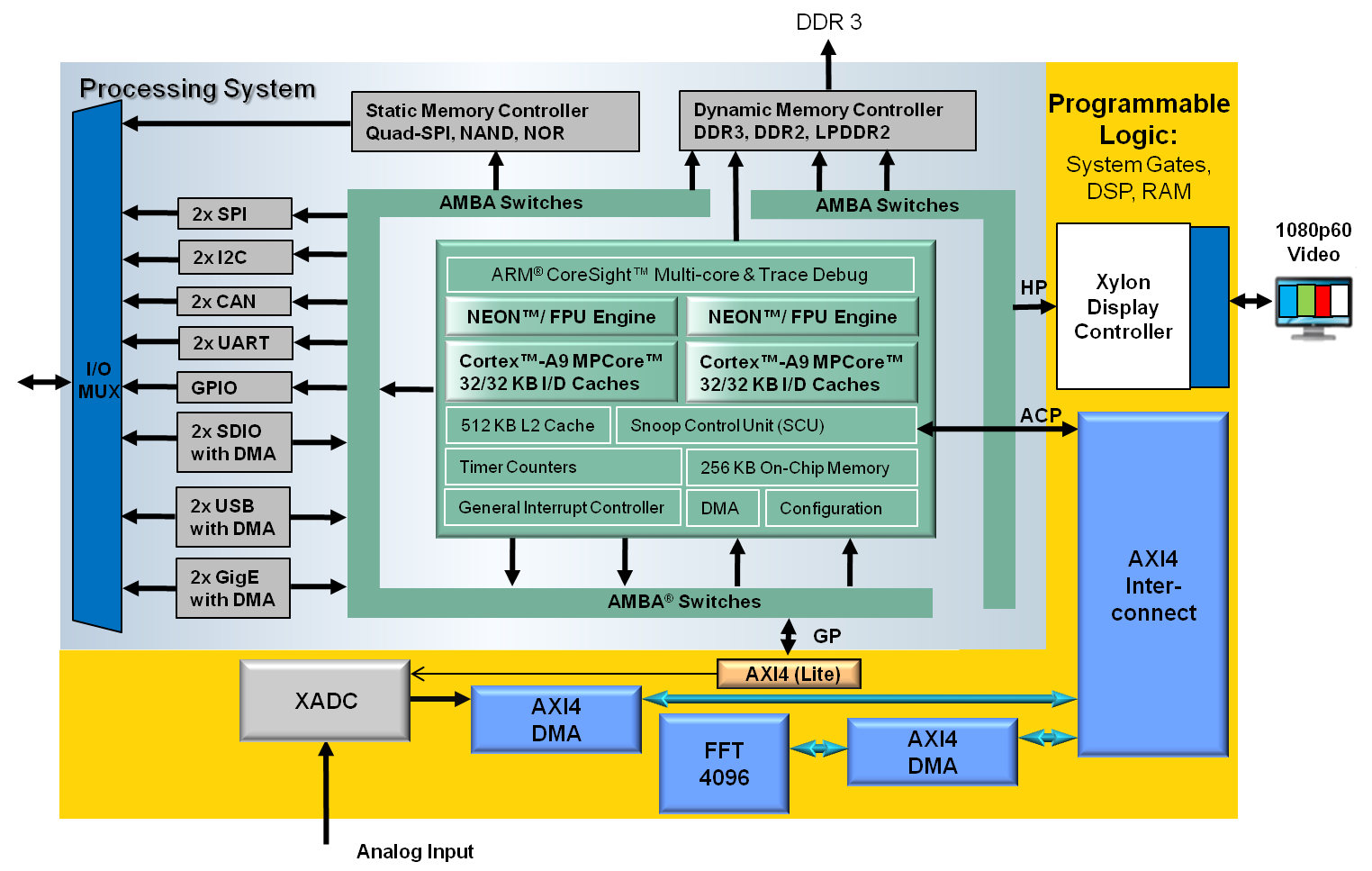
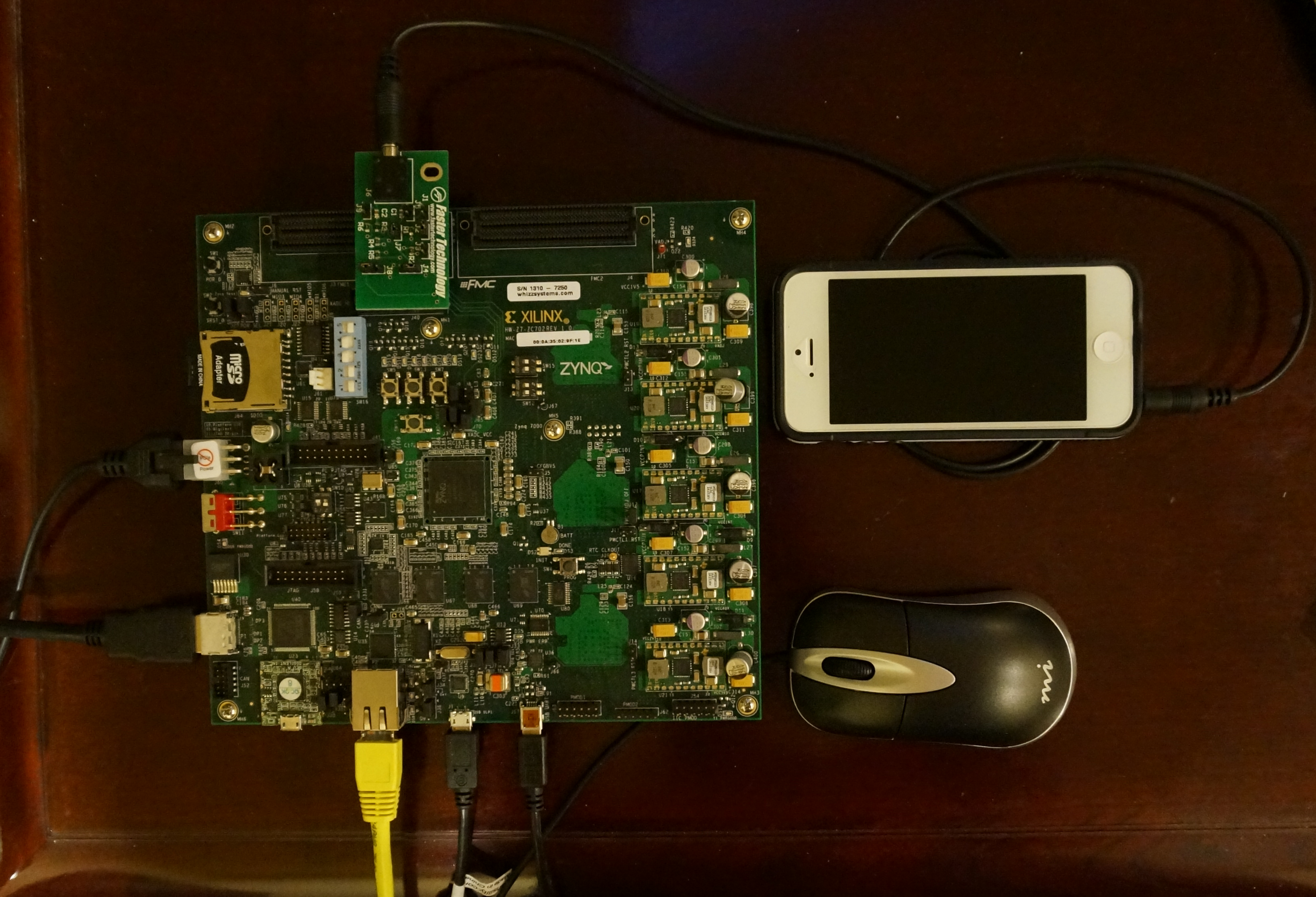
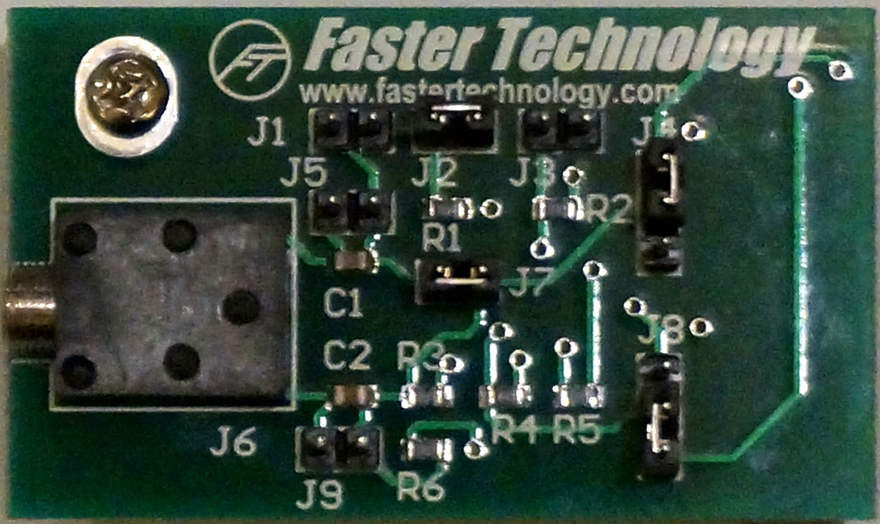


 Play, Pause, Pause 5 seconds repeatedly
Play, Pause, Pause 5 seconds repeatedly Select vertical scale (max value) FFT display - 0.1, 0.25, 0.5 or 1.0 volts - enhances low level signals
Select vertical scale (max value) FFT display - 0.1, 0.25, 0.5 or 1.0 volts - enhances low level signals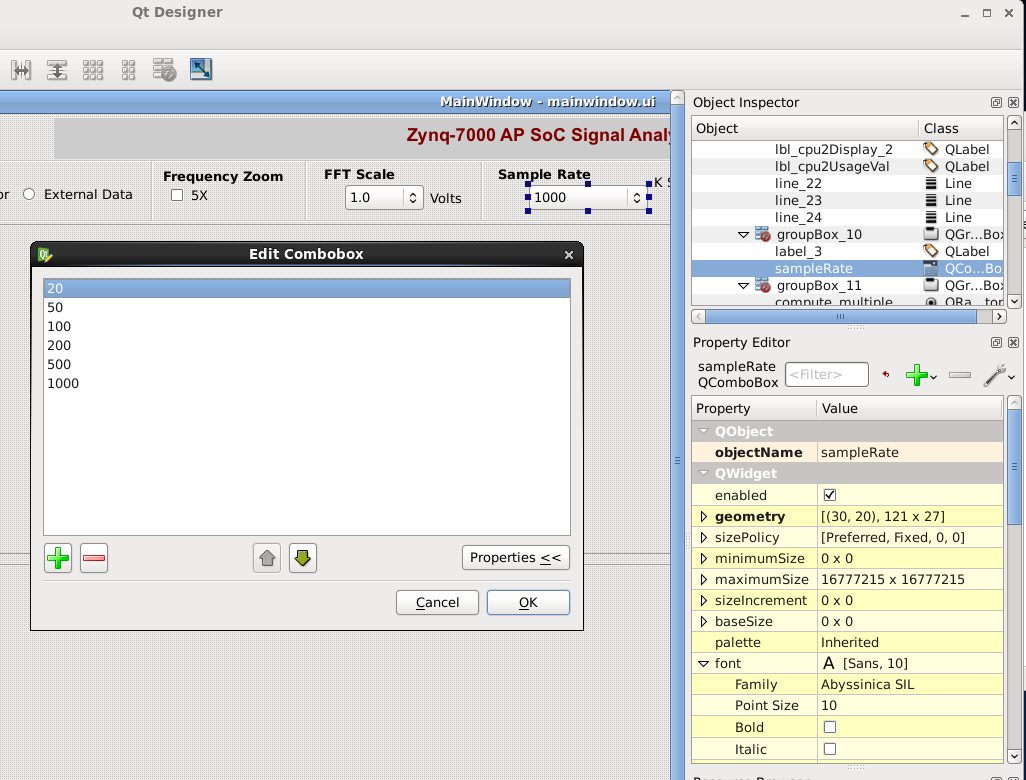 Sample Rate - select the XADC sample rate (20, 50, 100, 200 5001000 K Samples / sec.)
Sample Rate - select the XADC sample rate (20, 50, 100, 200 5001000 K Samples / sec.)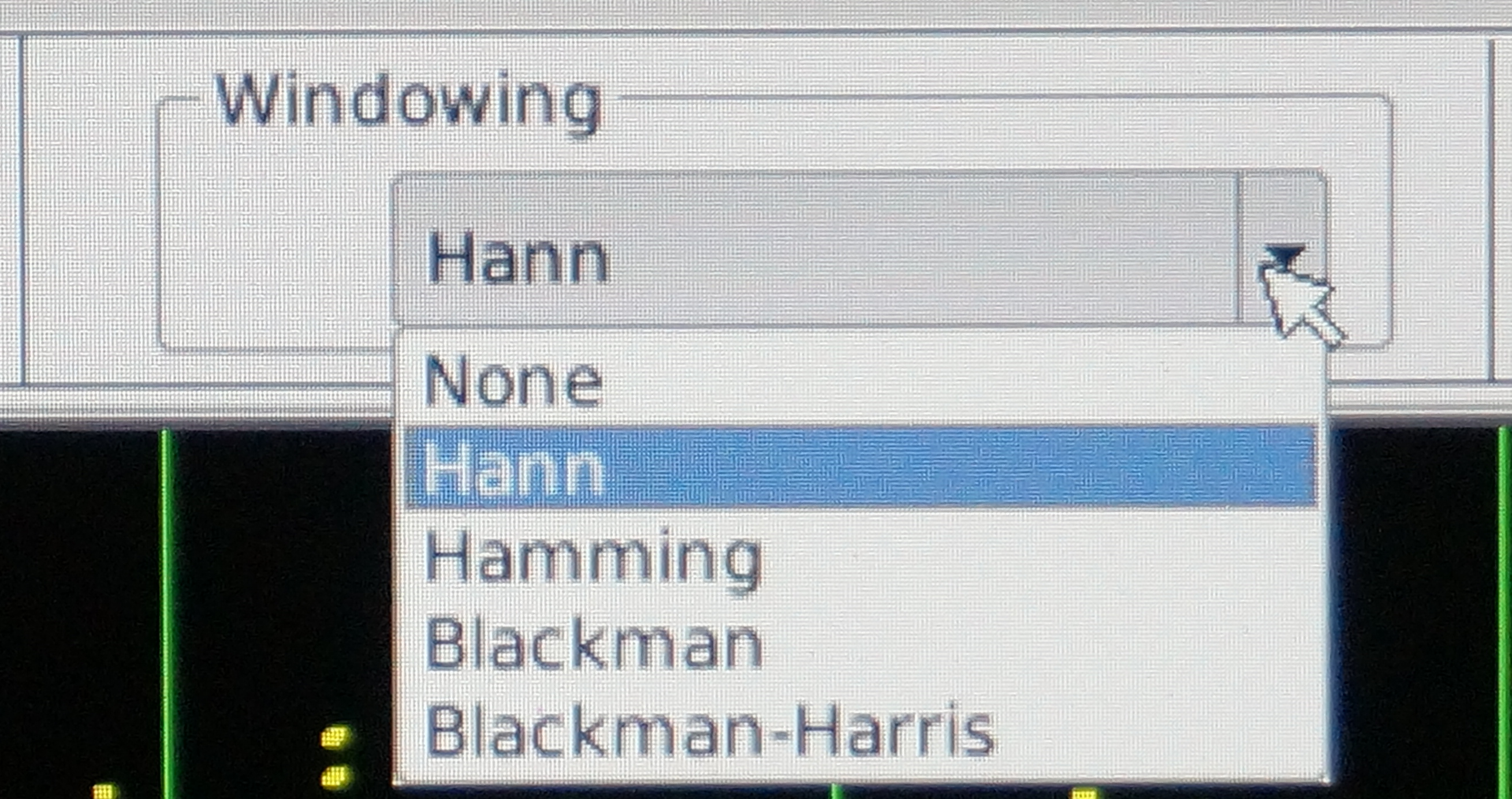 Windowing - select none or a common FFT window (http://en.wikipedia.org/wiki/Window_function)
Windowing - select none or a common FFT window (http://en.wikipedia.org/wiki/Window_function) FFT Compute resource - Software, NEON, PL Accelerated (See yellow status window for average compute time)
FFT Compute resource - Software, NEON, PL Accelerated (See yellow status window for average compute time) Compute Type - Normal / Multiple - multiple reads and computes 1000 FFTs and then displays the last computed value. Useful for seeing relative update performance and CPU loading.
Compute Type - Normal / Multiple - multiple reads and computes 1000 FFTs and then displays the last computed value. Useful for seeing relative update performance and CPU loading. Status Window - displays average compute time for the FFT - depends on FFT type selected.
Status Window - displays average compute time for the FFT - depends on FFT type selected. Performance - shows the CPU loading and use of the HP ports between the PS and PL
Performance - shows the CPU loading and use of the HP ports between the PS and PL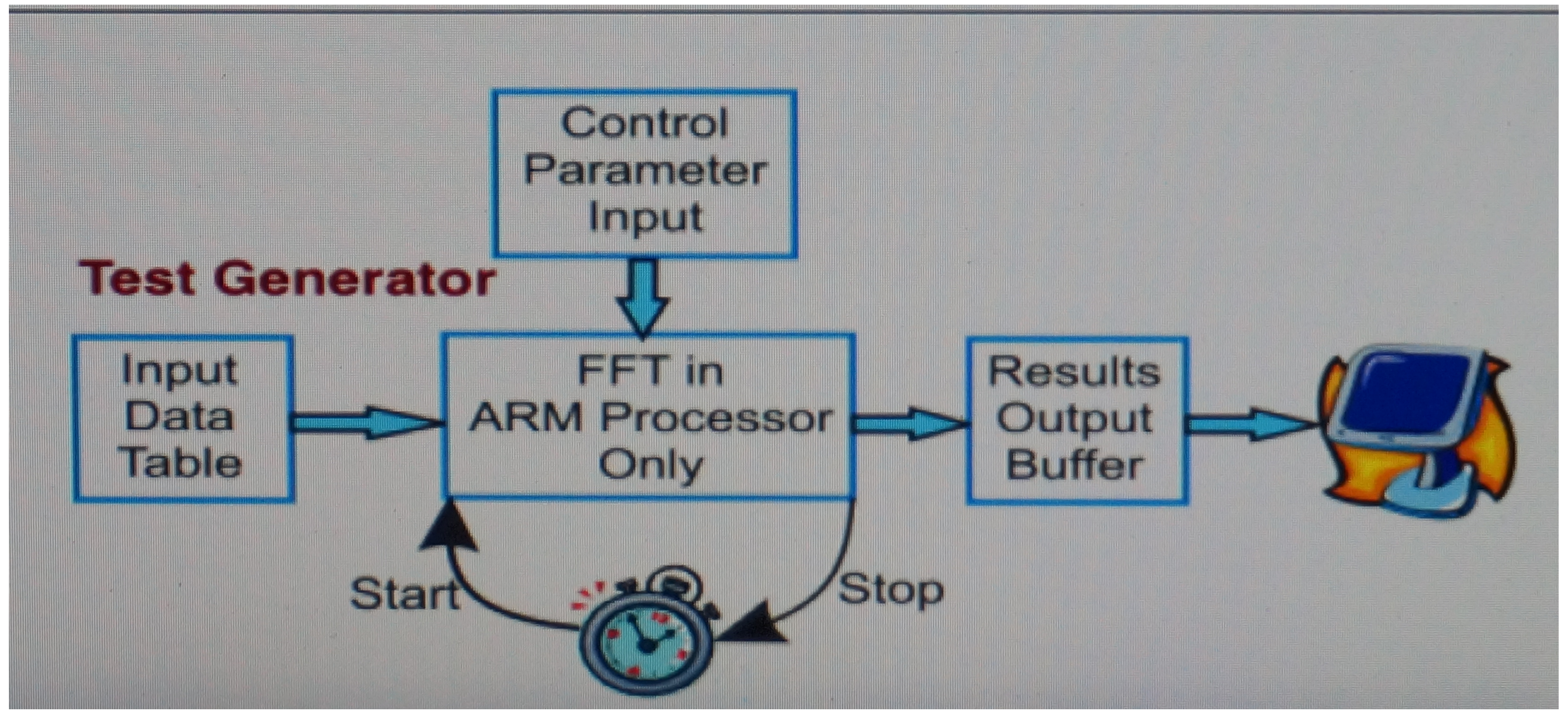 Block Diagram shows the data flow in the application - changes based on selected input and FFT type
Block Diagram shows the data flow in the application - changes based on selected input and FFT type Usage - graphically shows CPU and AXI bus loading
Usage - graphically shows CPU and AXI bus loading